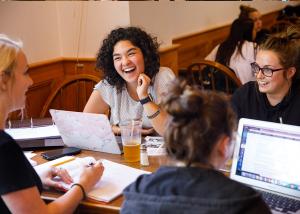
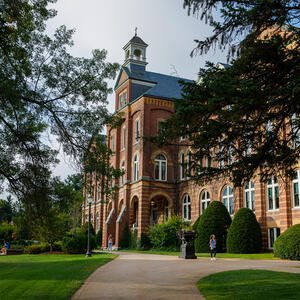
article
Students Take Accounting Skills to Tax Assistance Program
Saint Anselm students gain real-world experience by assisting with free tax preparation.
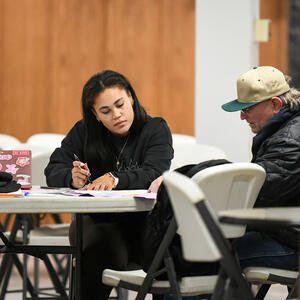
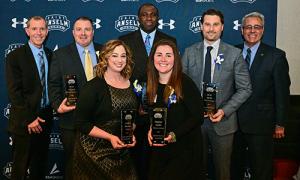
article
Bedford Falls Foundation-DAF supports Saint Anselm nursing with $1.8M donation
Saint Anselm College has received a transformational donation of $1.8M from the Bedford Falls Foundation-DAF.
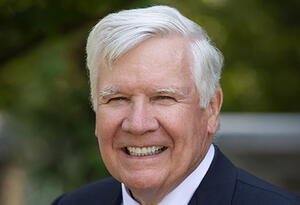
article
Discover Zines

In partnership with Inés Vañó García of the Modern Languages and Literatures Department, we have established our first collection of Zines. Zine is short for magazine or fanzine and is a self-published work of text and images usually created to share thoughts and experiences often from marginalized communities that don’t have access to mainstream publishing outlets.
Our initial collection is comprised of Spanish, English, and Bilingual zines from North America, South America, and Europe, and is currently located in the Library’s DeCiccio Reading Room.
Visit our online guide for more information about zines, how to make your own zine, or about our collection.
article
Climbing the Hill: Women of Saint Anselm College
On a summer day in 1956, Mary Menner walked to the college from her home on Rundlett Hill. At less than a mile, her trip did not take long—but her journey to attend college was anything but short.
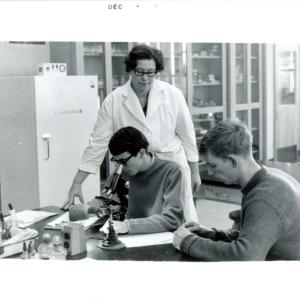
article
Building for the Future
With the opening of the Gregory J. Grappone Humanities Institute and the groundbreaking for Grappone Hall, the new home for the Jean School of Nursing and Health Sciences, Saint Anselm College is embracing tomorrow, today.
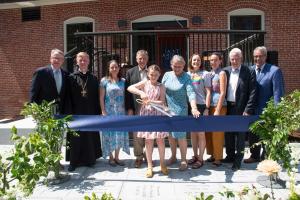
article
“Me, Myself, and I” Presentation by Dr. Gilbert M. Foley
We would first like to thank Dr. Gilbert M. Foley, EdD for joining us on campus alongside many accomplished professionals in the field! As students, it is always great to see our facilities such as the NHIOP being used openly by the community whilst also allowing students to gain a broader knowledge of study from outside the College’s affiliates. For those of us interested in childhood psychology, trauma, and attachment, this program was a great supplement to our studies. This presentation was very enriching because of the amount of detail and background given to support the main objective that infants, toddlers, and children have specific and important attachment needs. Not only was evidence of this idea provided by brain scans of children whom had experienced neglect, but also in the philosophical formation of the self. The early formation of the self plays a role in the “Brain-Self Connection” in that a lack of ego identification can be detected in many (though not one specific) locus of the brain. Ego and early sense of self can only be developed properly within a secure and stimulating attachment environment, further promoting the importance of early childhood and parental interventions. Alongside this concept, it is clear that children in particular need secure attachment through relationships, affection, sensation, and language in order to relate to the rest of the world through their sense of self. As students in this field, what should we be focusing on as we approach our professional research and fieldwork? Dr. Foley suggests that attachment interventions should incorporate affectionate touch, mutual gaze (reflective functioning), and certain vocal-rhythm combinations. A special focus should be put on responsive and secure caregiving while also being mindful of age-appropriate sensory input. As students, these lessons were very helpful and enriching, and we are very thankful for Dr. Gilbert Foley for representing his important work here on campus!
